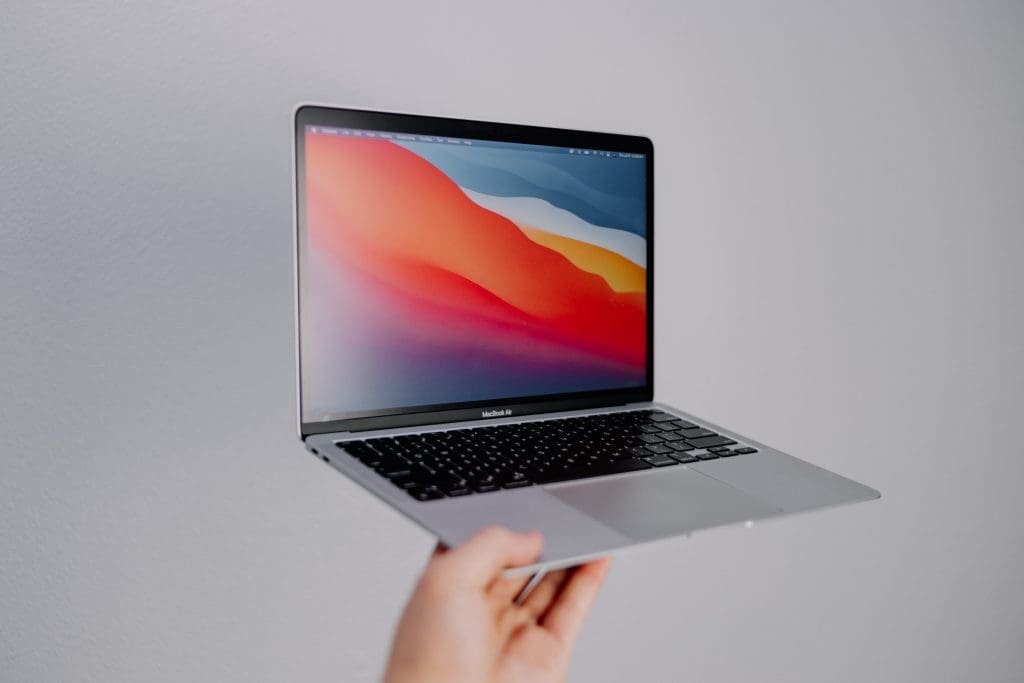In the digital age we all live in today, it’s important for seniors to stay connected.
The main form of connection today, of course, is through the World Wide Web. While most seniors are far from digitally illiterate, the majority prefer a computer that’s easily accessible, simple to use, won’t break down, and above all, meets their needs. With this in mind, this guide will help you determine the best computers for seniors whether planning a purchase as a gift or together.
What To Consider When Purchasing a Computer for an Older Adult
To find the best computer for you, your parent or your loved one, you’ll need to ask yourself how you’ll spend most of your digital time.
- Will they mostly use it to connect with friends and family through email, Zoom, Facebook, and other social media?
- Will they look at family photos and videos, listen to music, watch movies using their computer?
- Use it for playing games?
- Take up or expand upon a hobby like digital art or video editing?
Search for Information
All the information in the world is at your fingertips with a Wi-Fi connection and a search engine. You can show your loved one how to access Google or another search engine on a computer so they can find information on any topic they’re interested in or ask any question they have.
Make a Video Call
While your loved one can regularly make video calls with friends and family, they’re also one call away from their doctor. If your loved one has a question or something they want to address, they can set up a video call and reach their doctor immediately without having to schedule an office appointment.
Manage Accounts
If your loved one is interested in managing their accounts digitally, they can do so on a computer. They may not want to receive bills or send checks via mail.
They can set up their bank account and their various bills to automatically pay so they no longer have to remember due dates. Your loved one can also get a quick overview of their account to see all the information at once and no longer have to piece together information from different letters.
User-Friendly
You may want to research the kind of operating system the computer has and if it’s meant for people who would use the computer for convenience.
If your loved one has any disabilities, you’ll want to see if the computer can accommodate their needs, whether that’s reading web pages aloud or having voice capabilities so your loved one can dictate text.
While it would still need the capabilities to meet your loved one’s needs, you may not need to get them the most high-tech computer meant for building code or designing high-concept media.
Cost
Laptops can range from around $300 to $3,000 or more, so it’s important to establish a budget and look at the computers within your loved one’s price range. While the computers at the $3,000 level may look sleek and shiny, you can get much of the same functionality and use out of a less expensive laptop.
In any case, the best computers for seniors usually include a larger screen with high resolution, fast speed, and good cameras.

Top Needs for a Computer
When you’re looking for a computer for your loved one and you know their needs, you’ll also want to take a look at the specifications of the computer’s components, including:
RAM
RAM is a computer’s performance speed. More RAM means a faster computer, whether you’re gaming, video chatting, or surfing the web. For most seniors, 8GB to 18GB (gigabytes) will be plenty.
Processor
A CPU, central processing unit, is the main component of a computer. Processing power is another indicator of computer speed.
Measured in gigahertz (GHz), it means how much and how fast a computer can receive information. Anywhere between 2.3GHz and 4.3GHz is enough for most people.
Storage
A computer’s hard drive storage, measured in gigabytes, is how much space is available to save images, videos, and all other files on your computer.
While greater storage means more space, 128GB to 256GB is enough for most seniors — though some computers and hard drives come with 1TB, or terabyte, equal to 1,000GB.
Screen Resolution
Higher screen resolution means images on your screen quality will appear sharper but text will look smaller. This is an important factor for seniors.
A computer or screen with a 1024×768 resolution provides clearer detail, while a 800×600 resolution is better for people with poor eyesight.
Camera Resolution
For those prioritizing video chats with friends and family, a higher screen resolution yields clearer results. An 1080p resolution camera or above is ideal.
Computer Size
If you’re looking for a portable computer you can take with you on the go, a laptop or tablet with a large screen is probably your best bet.
However, larger computers have bigger screen sizes and usually more processing power. If you plan on only using your computer at home, consider a desktop computer.

Best Computers for Seniors
With all the above considered, you’re ready to make an informed decision before purchasing your new hardware. Here are our top four picks for the best computers for seniors that can act as a solid baseline to get you started on your buying journey.
MacBook Air
Lightweight yet durable, fast and sleek, the Apple MacBook Air is a perfect laptop for seniors – especially those who already have an iPhone and are familiar with Apple products.
The Air has a built-in high-resolution Retina display, which is one of the best resolution screens on the market today, as well as a backlit keyboard. And with excellent speakers, it’s ideal for those with both vision and hearing problems.
It’s also incredibly lightweight (hence the name Air). The standard model comes with a CPU that runs 1.2GHz, 256GB of storage, and 8GB RAM.
The MacBook Air screen size measures 13.3”, but those who want a larger screen can opt for the MacBook Pro at 16”. Just be aware that the MacBook Pro is a bit bulkier than the Air.
Dell Inspiron 15 3000
The Dell Inspiron series is known to be reliable, fast and easy to use. The 15 3000 boasts a 17” full HD screen, along with a backlit keyboard, which makes it perfect for seniors who use computers frequently. Its operating system is Windows 10.
Many older adults find Windows to be extremely straightforward and senior-friendly. The Dell Inspiron 15 3000 has a 2.8GHz CPU, 128GB storage, and 4GB RAM.
ASUS Chromebook
The biggest draw of the ASUS Chromebooks is that they’re a laptop and tablet in one machine. There are a few different Chromebook models, but all the Flip models can be used with a keyboard as a laptop or be flipped around to be used as large tablets.
The second biggest draw is the operating system, Chrome OS. It’s Google’s operating system to rival Windows and Apple, and many seniors find it much easier to navigate, though that’s a matter of personal preference.
The standard screen size is 14” with 8GB RAM, 128GB storage, and its CPU runs a blazing 3.4GHz.
ACER Aspire E5
This laptop has been called the best value for seniors today. It’s inexpensive, well made, and very easy to use. The Aspire E5 runs on Windows 10 operating system, which as we’ve mentioned is popular with older adults.
Its 15.6” full HD display, responsive and comfortable keyboard, and long battery life also make it a hit among older adults.
It’s truly a senior-friendly laptop with no bells and whistles. It features 4GB RAM, 128GB storage, and a CPU running 3.5GHz.
If you’re looking to stay connected, these computer suggestions will certainly help. What would help you stay connected, engaged and active even more is living in a community full of people like you who don’t want to slow down at this stage of life.
That’s what you’ll find here at Sedgebrook. To learn more about how residents at our community stay connected digitally and with each other, fill out the form on this page.




